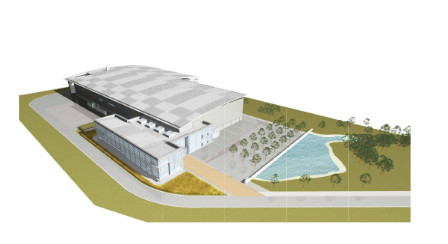On 10th March the Ministry of Defence approved funding to restart the troubled project to build a new enriched uranium manufacturing facility at AWE Aldermaston. Project Pegasus was a £634m project within the larger Nuclear Warhead Capability Sustainment Programme (NWCSP). Work on the project was paused in 2014 or early 2015 due to mismanagement, delays and cost overruns. The facility will be used to manufacture enriched uranium warhead components and nuclear submarine fuel pellets.
The restart was announced in a letter to the Chair of the House of Commons Public Accounts Committee (PAC) by Stephen Lovegrove, Permanent Secretary at the Ministry of Defence. Such letters are routinely sent to the PAC to advise them of changes to projects within the Government’s Major Projects Portfolio, such as the NWCSP. In this case the project was reassessed in light of the government’s plans for a new nuclear warhead.
The letter states that Pegasus suffered from “poor contractor performance” and “an overly complex technical solution”. This lead to “significant additional construction and safety case costs” and “severe delays”. Documents disclosed to NIS under the Freedom of Information Act suggested that the process of gaining regulatory permission for the project was started late. Problems were then caused by changes in senior management and numerous design changes being made to the project.
The letter to the PAC states that the project has been split into two phases. The first phase of work involves completing the store part of the facility and assessing the work needed to complete the manufacturing facility. The predicted cost of this phase of the project, which has now been given approval, is £77m. Completing the store was said to be the highest priority within the project. The letter does not give an estimate for the cost of completing the manufacturing facility. However, it says AWE estimates the cost will be more than the £265m that remains from the original £634m Pegasus budget. This implies that £292m was spent on the project prior to it being placed on hold. It is not clear how much of this money was spent on work that can be utilised now that the project has restarted.
The Pegasus facility was planned to replace the A45 uranium facility built at AWE Aldermaston in the 1950s. In 2012 corrosion was discovered in the steel frame of the facility. The original business case for the Pegasus project said the A45 facility was “incapable of meeting future capability and regulatory requirements”. Project Mensa, which involves the construction of a new warhead assembly facility at AWE Burghfield, was approved a month before Pegasus and is delayed by six years and forecast to cost over £1bn more than its original budget. In November 2020 the Government announced it was taking AWE back into public ownership.
